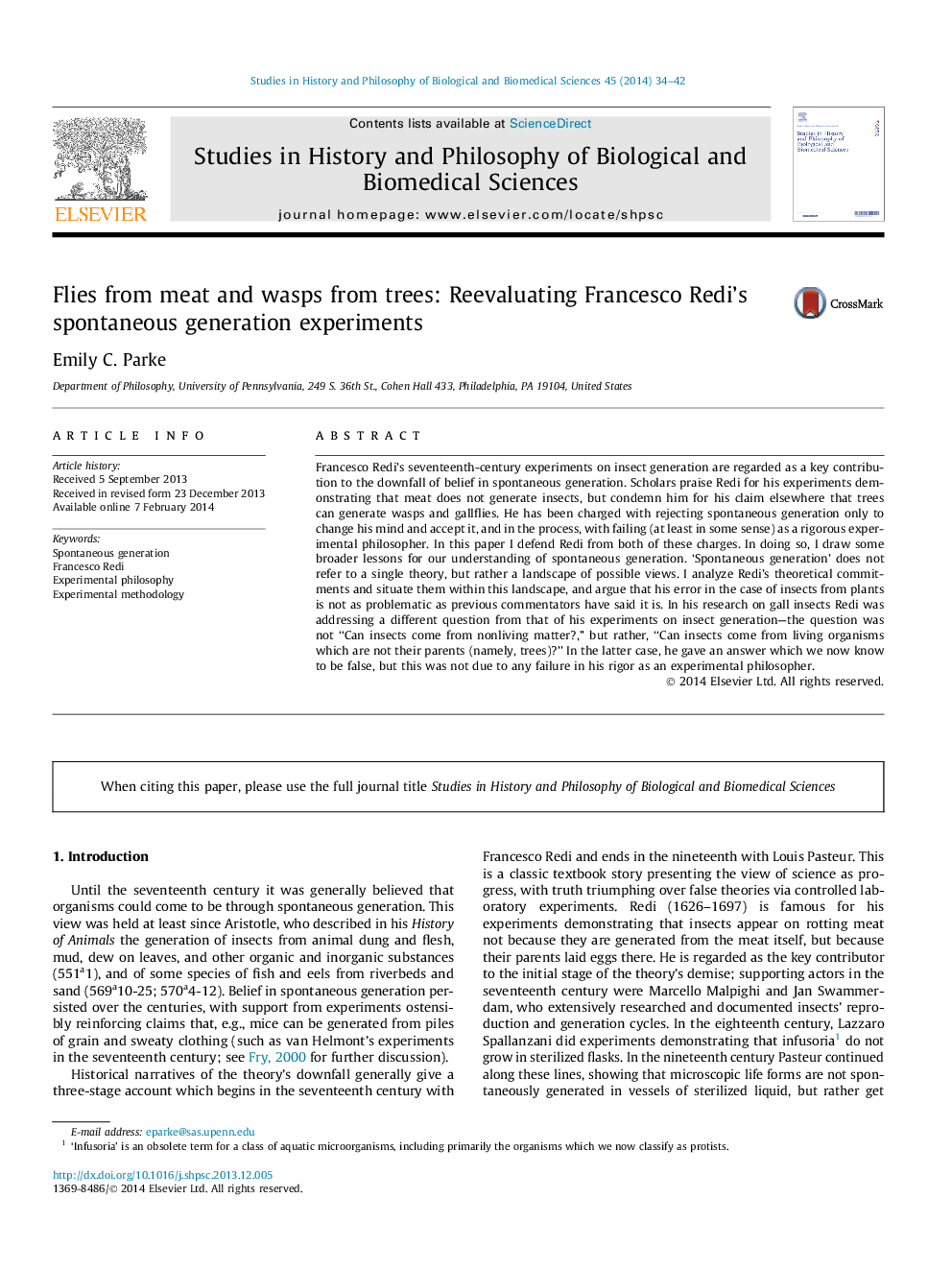| Article ID | Journal | Published Year | Pages | File Type |
|---|---|---|---|---|
| 7552728 | Studies in History and Philosophy of Science Part C: Studies in History and Philosophy of Biological and Biomedical Sciences | 2014 | 9 Pages |
Abstract
Francesco Redi's seventeenth-century experiments on insect generation are regarded as a key contribution to the downfall of belief in spontaneous generation. Scholars praise Redi for his experiments demonstrating that meat does not generate insects, but condemn him for his claim elsewhere that trees can generate wasps and gallflies. He has been charged with rejecting spontaneous generation only to change his mind and accept it, and in the process, with failing (at least in some sense) as a rigorous experimental philosopher. In this paper I defend Redi from both of these charges. In doing so, I draw some broader lessons for our understanding of spontaneous generation. 'Spontaneous generation' does not refer to a single theory, but rather a landscape of possible views. I analyze Redi's theoretical commitments and situate them within this landscape, and argue that his error in the case of insects from plants is not as problematic as previous commentators have said it is. In his research on gall insects Redi was addressing a different question from that of his experiments on insect generation-the question was not “Can insects come from nonliving matter?,” but rather, “Can insects come from living organisms which are not their parents (namely, trees)?” In the latter case, he gave an answer which we now know to be false, but this was not due to any failure in his rigor as an experimental philosopher.
Related Topics
Life Sciences
Agricultural and Biological Sciences
Agricultural and Biological Sciences (General)
Authors
Emily C. Parke,
